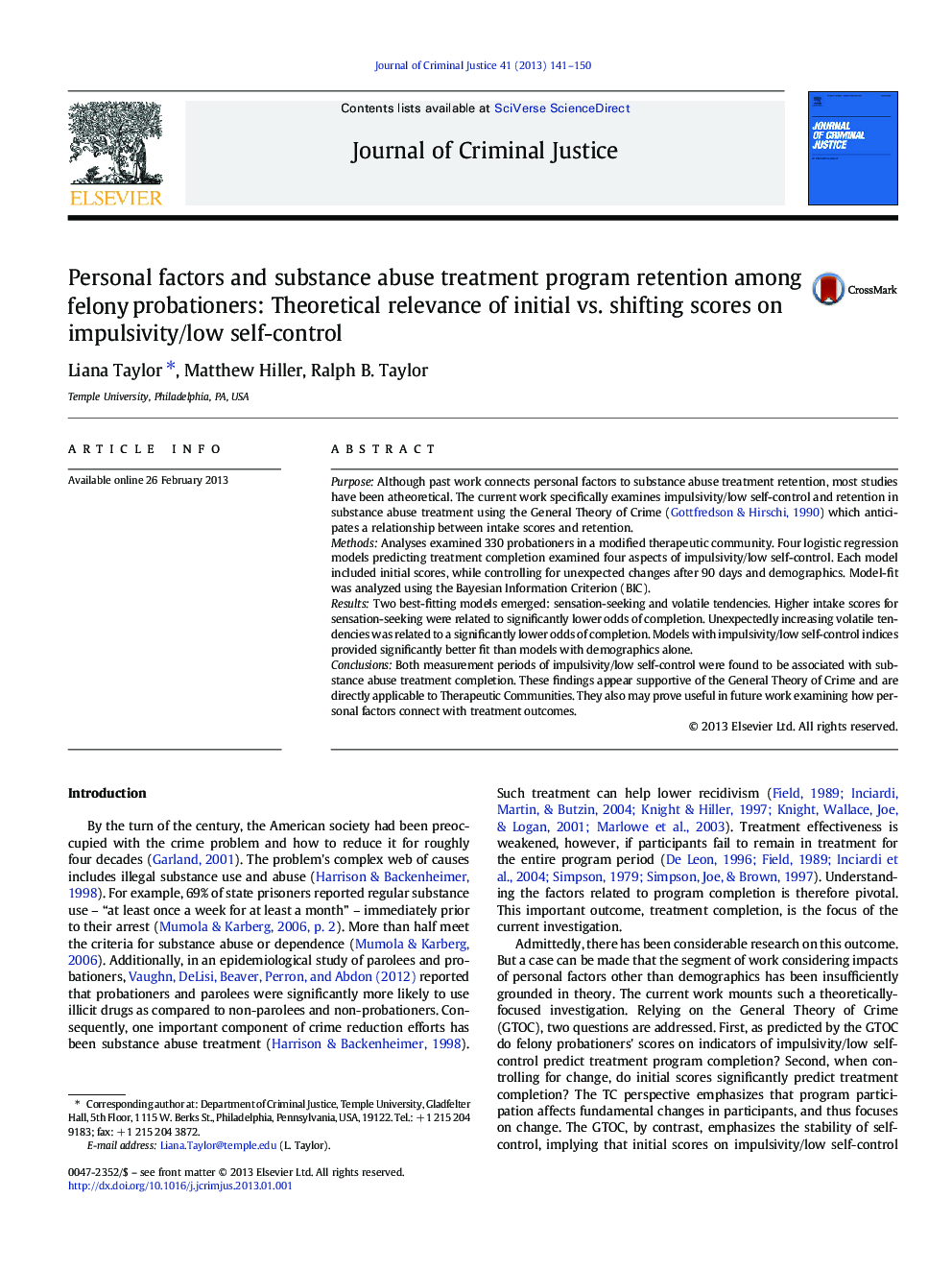| کد مقاله | کد نشریه | سال انتشار | مقاله انگلیسی | نسخه تمام متن |
|---|---|---|---|---|
| 882784 | 912022 | 2013 | 10 صفحه PDF | دانلود رایگان |

PurposeAlthough past work connects personal factors to substance abuse treatment retention, most studies have been atheoretical. The current work specifically examines impulsivity/low self-control and retention in substance abuse treatment using the General Theory of Crime (Gottfredson & Hirschi, 1990) which anticipates a relationship between intake scores and retention.MethodsAnalyses examined 330 probationers in a modified therapeutic community. Four logistic regression models predicting treatment completion examined four aspects of impulsivity/low self-control. Each model included initial scores, while controlling for unexpected changes after 90 days and demographics. Model-fit was analyzed using the Bayesian Information Criterion (BIC).ResultsTwo best-fitting models emerged: sensation-seeking and volatile tendencies. Higher intake scores for sensation-seeking were related to significantly lower odds of completion. Unexpectedly increasing volatile tendencies was related to a significantly lower odds of completion. Models with impulsivity/low self-control indices provided significantly better fit than models with demographics alone.ConclusionsBoth measurement periods of impulsivity/low self-control were found to be associated with substance abuse treatment completion. These findings appear supportive of the General Theory of Crime and are directly applicable to Therapeutic Communities. They also may prove useful in future work examining how personal factors connect with treatment outcomes.
► The standardized residual of volatile tendencies significantly predicted retention.
► The intake measurement of sensation-seeking significantly predicted treatment completion.
► Both volatile tendencies and sensation-seeking models had the lowest BIC's.
► There was a weak difference in the BIC for the two models.
Journal: Journal of Criminal Justice - Volume 41, Issue 3, May–June 2013, Pages 141–150